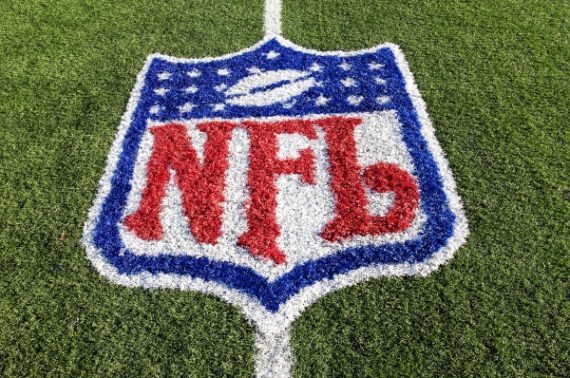NFL Tax Exempt Status Means They Pay More Taxes
No, the NFL isn't a non-profit. Yes, it pays massive amounts of taxes.
The NFL is a tax-exempt organization. No, it isn’t a non-profit. Yes, it pays massive amounts of taxes–more than it would if it weren’t tax exempt.
While Major League Baseball’s fabled exemption from anti-trust laws is well known, most people likely didn’t realize the National Football League was tax-exempt until Senator Tom Coburn (R, OK) called for reviewing it a couple weeks back. It turns out that the National Hockey League (NHL) and Professional Golf Association (PGA) has the same status. According to one estimate, stripping all these exemptions could bring in $109 million in tax revenue over the next ten years (which is to say, essentially nothing).
But Forbes’ Peter J. Reilly explains that the filing status is likely costing the NFL more that it saves. He looks at the League’s Form 990 for clues.
From the Form 990 we learn that the NFL has just over a quarter billion in revenue. Does that strike you as kind of low ? What with all those TV advertisements and everything. The thing is that money does not belong to the NFL. The bulk of the NFL’s revenue is membership dues. It also collects about half a million in fines and penalties and has slightly less than $200,000 in investment income. There are some people making good money working for the NFL. President Roger Goodell had reportable compensation of nearly thirty million. The really big money is not with the NFL. Rather it is with the 32 teams that constitute its members.
[…]
Despite football’s quasi-religious status, the NFL is not exempt under 501(c)(3). It is exempt under 501(c)(6) which is defined as:
Business leagues, chambers of commerce, real-estate boards, boards of trade, or professional football leagues (whether or not administering a pension fund for football players), not organized for profit and no part of the net earnings of which inures to the benefit of any private shareholder or individual.
Another example of a 501(c)(6) organization is the American Institute of Certified Public Accountants. Not as good a deal being the President of the AICPA, Barry Melancon had to get by on just $1,634,068. Essentially 501(c)(6) organizations are not charities, because their members are trying to make money. The members, though, are trying to make money for themselves. They don’t really have an interest in having the 501(c)(6) make money. That is why it is not-for profit even though it is not a charity.
The bottom line?
The NFL had expenses in excess of revenue of $77,628,857 for the year ended 3/31/2012 and $52,195,407 for the prior year. Apparently, that is nothing new. The liabilities of the NFL exceeded its assets by $316,642,454 at 3/31/2012. Superficially, my reasoning would be that if the NFL was organized as an LLC, instead of as an exempt organization, the member teams would have had nearly a third of a billion more in deductions since inception. I’m sure it is more complicated than that, but I suspect that the motivation for the way it operaties may be to keep liabilities off the balance sheets of the member organizations. It appears to me that if there is a game there, it is a GAAP (generally accepted accounting principles) game, not a tax game.
Superficially, it appears that, if the NFL were not an exempt organization, it would not owe federal income taxes, because it has not been making money. If you view the NFL in conjunctions with its member teams, it appears that it has the effect of increasing aggregate taxable income.
The problem is that people are confusing the business entity of the NFL with the massive business entity we think of as “the NFL.” The latter makes an enormous amount of money; it just accrues to the 32 member teams and their owners, not the League.






I find his analysis confusing. Even if the NFL were a LLC, what’s the GAAP rule that would require a minority LLC interest owner to show a liability as a result? It’s not from dues payable, which are already booked. He must mean some effect from a consolidation rule, but I’m not aware of which one.
Even if it were true that NFL, LLC would create a book liability for the teams, why would they care? Most teams are general partnerships and are not publicly traded. Surely any investor or lender would already be aware of any off-balance sheet liability. Why avoid booking it, then?
David – it wouldn’t be a liability being booked. If organized as an LLC, the losses would pass through to the members and be eligible for deduction there (within certain restrictions).
Superficial is the key word in the write-up. There are obviously accounting shenanigans going on. Note that the NFL refused to certify it followed the standard financial accounting standards for non-profits, in effect not claiming to comply with any published standards at all. Who would lend a money losing league a billion or so dollars if not a related party? My guess is there is some reason for getting cash off the books or driving up liabilities of member teams. The NFL isn’t really in the hole, it is carrying water for its constituency.
No one thinks this is insane? When did Goodell last score a touchdown, complete a pass or even diagram a play, let alone risk his health & life for the entertainment of couch potatoes?
There must be at least three million Americans (one percent of the population) who’d do as well or better than Goodell for a mere, say, three million (ten percent of what they report as his compensation) a yr.
@Vivian J. Paige:
Vivian: yes, I understand LLCs that elect partnership treatment are pass-throughs for tax purposes. But the article was about GAAP, and my understanding there is that you carry your investment in an LLC at cost on your balance sheet – with no P/L effect – unless you have voting control, in which case you consolidate.
@M. Bouffant:
One percent is a stretch. People who succeed in positions like Goodell’s require uncommon leadership and organizational skills, which are as rare as good football skills. It’s popular to pound these guys as undeserving, because it’s easy to find examples of nepotism and cronyism, but the uncomfortable truth is that not many could do their jobs. The system of compensation for corporate execs has become a massive fraud on the shareholders, but that does not mean that they are easily replaced.